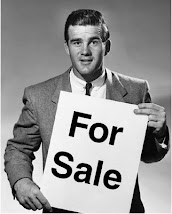In the last 3 months we've been trying something a bit different in our campaigning for new business- we decided to follow our own advice, which is rare for consulting firms, in that we decided to run a really narrow campaign, rather than the 'we can do everything in our space' marketing so common in our field. So we chose a single product to concentrate on, one that we're really proud of, and is different in form and content, to what a lot of our competitors do. We developed some simple and cost-effective (cheap but cheery) marketing materials to send out to interested clients, identified 100 or so international companies to target and began a one-person (Her name's Elvira and she's based in Barcelona) telephone driven approach to very senior people in those firms. Our call plan was simple. We wanted to explain-
- This is who we are,
- This is what we do,
- This is how we think it might help you and in the following ways,
- This is who we've done it for in your region.
- Are you interested in finding out some more?
- Can we send you some materials?
- Can we call you back in a couple of weeks?
Simple as that, always giving the client the chance to say 'no thanks'. Guess what? 15 out of 100 clients targeted agreed to meet us straight away. We are delighted. Why? Because though we're pretty good at this kind of thing, we've never had such a high hit rate so soon. I've been pondering why this might be and have decicded that it's probably because we were focused on such a small niche thing, and therefore 'clean' and clear in our approach. By contacting clients and saying, honestly, that's all we want to talk to you about, gave them a chance to say that they don't need it, and gave them the power in the conversation.
We got a far more positive response than we've ever had when we tried to say "we can do everything, give us a job." The meetings that we've attended in pursuit of these opportunities, have been some of the most satisfying in my career. We've had 5 meetings so far with people and organisations we've never met before, and the clients we've met have been open, warm, and genuinely interested in what we have to say.




